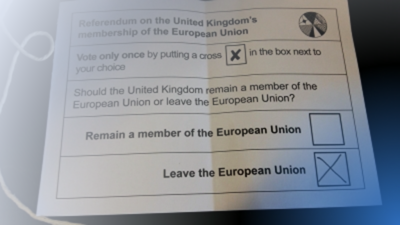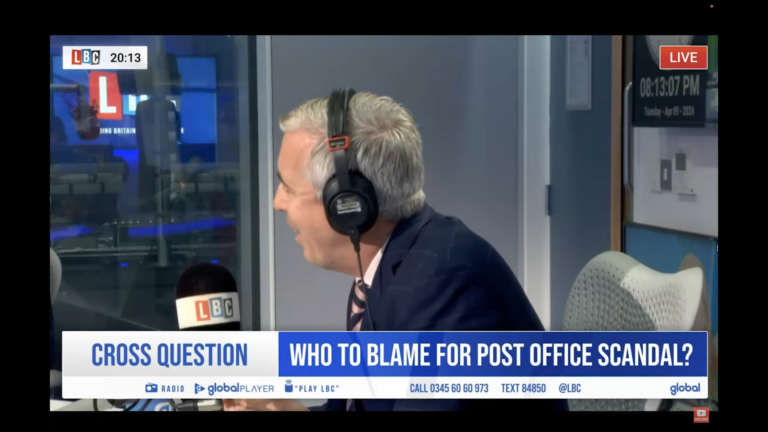On Tuesday, Prime Minister Theresa May outlined her vision for Brexit, clearly articulating the fact that the UK will leave the Single Market. Considering the Scottish Government’s clear signalling that such action is unacceptable, coupled with Scotland’s strong remain vote and the continued prospect of ‘IndyRef 2’, how exactly does the UK vision mesh with Scotland’s?
The Prime Minister’s much-anticipated speech on the UK Government’s objectives for withdrawal from the European Union (EU) confirmed what was becoming increasingly clear to observers: the UK is seeking a ‘hard Brexit’ during which it will leave the single market and clamp down on immigration from the EU.
Theresa May emphasised that she envisions a post-EU Britain as a global trading power – free to make new trade agreements on its own terms, without the need for those agreements to be voted upon by EU-member states, bound by EU law, or subject to EU fees. In doing so, she ruled out any Norway-style ‘association agreement’. Many people welcome this as a wise move, considering that Norway pays large fees to the EU to for access to the single market and are bound by its laws, yet have no say over the content of those laws and how they are formed.
While details on what a ‘hard Brexit’ will look like remain blurry, May was clear that while Britain wants to keep good relations with Europe, and cooperate on security and defence, it will be looking beyond Europe for new trade partners. She emphasised ties with the Gulf states, India and, after an interesting interview with Michael Gove, President Elect Trump’s statement that Britain will be at the front of the queue for new US trade deals.
Most significantly for Scotland, Theresa May began her speech with the promise to put ‘the preservation of our precious Union at the heart of everything we do’. And while she did not explicitly rule out a separate deal for Scotland, she was also clear in her belief that the UK needs to face the future together as a union, implying that this is not an option she is likely to consider too closely.
As such, the Prime Minister has denied the Scottish Government its key Brexit demand of remaining in the European Union and has signalled that no special deal for Scotland is possible. In light of this, how can we expect Scotland to react?
First, it is important to remember that Scottish voters backed remaining in the EU by 62% to 38% during the EU referendum last year. This is a clear majority. The Scottish Government also secured a mandate from the Scottish Parliament to protect Scotland’s relationship with the EU during an emergency debate held after the results of the referendum were announced. While the Scottish Conservatives abstained from voting, Ms Sturgeon secured cross party support for her to take unilateral action both within Europe and the UK. Such support from opposition parties shows how clearly Scotland values its place in the single market.
Secondly, in outlining her vision for Scotland in post-Brexit Britain, Ms Sturgeon has been clear that any attempt to ‘force the Scottish people to leave the EU against our will’ would constitute a clear material change to Scotland’s relationship with the UK, and thus give the Scottish Government the right to bring another referendum on independence to the Scottish people. She reaffirmed this position before Ms. May’s speech when she told BBC Journalist Andrew Marr that she was “not bluffing” on independence and, that in the case of a hard Brexit “it would be right for Scotland to have the opportunity to decide.”
Hard Brexit now appears to be a political reality, and Ms. Sturgeon shows no sign of softening her stance on Scotland’s relationship with the EU. She has already accused the UK Government of steering the EU towards economic catastrophe and argued that “Decisions are being driven not by the rational best interests of the country, but by the obsessions of the hard-right of the Tory party.” Scotland, she said, is now closer to another independence referendum than ever before.
However, while this rhetoric shows how strongly the Scottish Government disapproves of the UK Government’s Brexit plans, it is important to step back and acknowledge two key things.
The first is that Ms. Sturgeon is the leader for the whole of Scotland, and while a majority wanted to stay in the EU, just over two years ago a majority also voted to remain in the UK. She will be very aware that she governs for the whole of Scotland, not just the YES voters. As such, any new referendum will have to be delivered at such a time that she is confident a YES vote will prevail. Most of the polls say that Scotland isn’t there. Yet.
Secondly, while Scotland does rely heavily on the single market, with the cost of leaving it standing at around £11 billion a year by 2030, the UK is still Scotland’s biggest trading partner. This means that if Scotland is to stay in the UK, even for the short term, it could be in Scotland’s best interests to see a good Brexit deal with the EU realised. As such, there will be a fine line to walk between opposing Brexit and economic pragmatism.
This being said, it is also important to realise that there will certainly be political ramifications if the Scottish people feel that their futures are being decided by Westminster without due respect for their votes and views. The UK Government will have to be careful not to be seen to alienate Scottish voters or support for independence could surge.
Taken together, it seems unlikely that ‘indyref 2’ will happen in the near future, however, don’t expect talk of Scottish Independence to die down. Over the next few months we can expect more talk of referendums, more Scottish Government negotiations with Westminster, and perhaps a widening of the perceived gap between Scotland and the rest of the UK.





